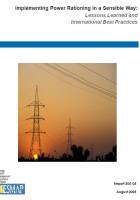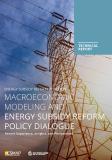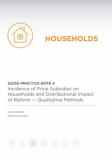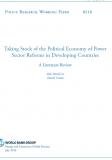Publications
Dealing with energy shortages has become a reality in developed and developing countries. The balance between supply and demand can be threatened by a variety of reasons, from droughts that lower the water levels in reservoirs that hydro generators depend upon to financial disasters that curtail utilities from purchasing sufficient power to provide to their customers. The impact of curtailed services goes beyond the immediate inconvenience of a lack of electricity. Power crises affect the economic and social fabric of a community, region, or nation.
In this publication, Luiz Maurer, Mario Pereira, and José Rosenblatt examine energy crises that have occurred in a number of countries, particularly Brazil. They provide pragmatic suggestions to stakeholders—including governments, utilities, consumer advocates, and others—to help avoid power crises or at least mitigate their impact when they do occur.
The authors recognize that the use of rationing as a response to shortages reminds many of the implications of centrally planned economies. However, they make clear that power sector reform does not necessarily make a system more vulnerable to energy crises, nor is rationing incompatible with reform. In fact, they argue, rationing through price signals can allocate energy in a financially sustainable and socially equitable way, creating the environment for a more stable power system.
ESMAP and the authors hope that this analysis of countries’ experiences with energy crises—both what has worked and what has not—will contribute to programs and policies that will, indeed, use energy in a rational way.
Maurer, Luiz; Pereira, Mario; and Rosenblatt, José. 2005. Implementing Power Rationing in a Sensible Way: Lessons Learned and International Best Practices. ESMAP Report 305/05. Washington, DC: World Bank.



